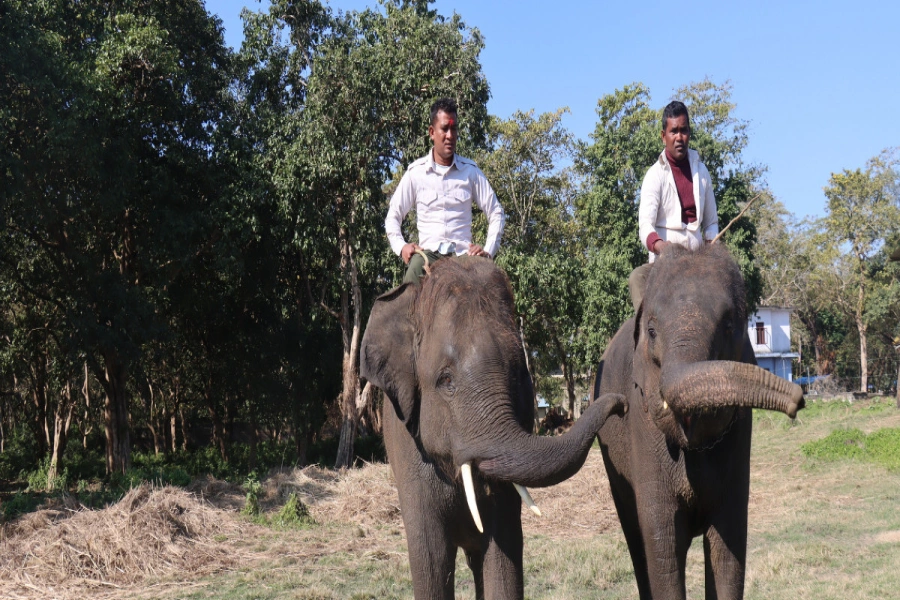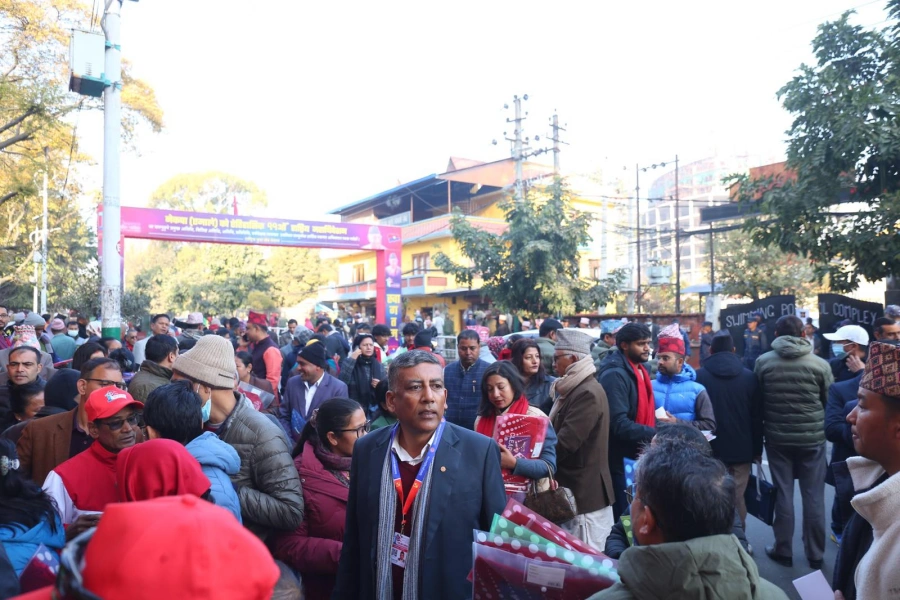Other metropolises, too, should adopt KMC’s new rule regarding owning dogs, say animal advocates
KATHMANDU, June 24: When animal advocate Sneha Shrestha first heard about the Kathmandu Metropolitan City’s (KMC) new rule regarding owning dogs, she was delighted and content. Shrestha, the founder of Sneha's Care, one of the largest animal welfare charities of Nepal, always wanted the authorities to come up with sturdy rules for animal well being. “I was pleased when I first heard about the new rule as it will greatly help in controlling the numbers of street dogs and the problems these dogs are facing as well as creating,” she said.
In order to manage the muddled scenario created by pets as well as street dogs across the Valley, the KMC has come up with a new rule for dog owners that requires them to take permission from the metropolis to own the animal. Along with that, the owners should also pay tax to the government for owning their dogs.
“We came up with this rule considering that people often own animals but later throw them in streets when such animals get sick or even when they’re done with owning them,” said spokesperson at KMC, Ishwar Man Dangol. “This act has always created chaos as the numbers of these dogs multiply on the streets further engendering disorder and uncontrollable situations.”
According to Dangol, this rule will be applied from the upcoming fiscal year.
Here’s what you need to know when flying with your pet

“This rule will largely help animal organizations working for animal welfare as the number of dogs thrown on the streets by their owners is a serious problem we have been failing to control,” Shrestha said. Animal welfare centers have been dealing with a large number of such cases because there is no system of keeping records of dogs when they’re owned by people. “Because of this, people think it’s ok to throw away their dogs on the streets whenever they want to, '' she said.
With the hope of formulating a proper policy for managing street dogs, the KMC had started dog census back in 2016. The same year, the office commenced a dog management and control program named ‘manumitra’ in which the metropolis deliberately sterilized wandering dogs in the city. Under this program, it has been conducting vasectomy and tubal ligation surgeries on stray dogs. The campaign planned for three years of time aimed to manage such dogs in all the 35 wards in Kathmandu.
Dangol stated that an estimated 25,000 stray dogs roam around Kathmandu whereas the number of pet dogs is somewhere between 10,000 and 12,000.
The mess created by these dogs in places across Kathmandu has raised concerns over cleanliness as well as health of city dwellers. Most of these dogs live in extremely filthy conditions, carrying various diseases with them. This situation multiplies the risk carried by street dogs in the Valley.
As explained by Dangol, it is not just street dogs that are to be blamed for creating a mess but also pet dogs that are equally culpable. “We often get to hear complaints about pet dogs distorting the cleanliness in surroundings” he said, “These dogs are often seen excreting in places across their neighborhoods again creating disorder in sanitation and hygiene. This makes pet dogs no different from stray dogs.”
Data prepared by the Department of Health Services showed that a total of 37,226 cases of dog bites were reported across the country in the fiscal year 2073\74. This number indicates that there has to be serious rules for the management and control of dogs, says Dangol. “If we do not formulate strict rules then the possibility of threat created by dogs will keep rising”, he said.
KMC’s determination to manage street dogs in Kathmandu doesn’t limit here as it is also planning to equip the pet dogs with GPS trackers. “Most of the pet dogs are left or thrown on streets by their owners. So, to reduce this problem and all the other troubles it invites, we have also planned to place GPS trackers in pet dogs” said Dangol.
The owners shall face punishment or will have to pay a certain amount of fine if they’re found throwing their dogs away.
However, some cynophilists have criticized the rule as many people think that paying tax for dogs sounds unusual. A lot of people in the Valley adopt dogs from streets and to pay tax for that doesn’t sound rational, they argue.
But, to clear the confusion in people, officials from the KMC said that people willing to own street dogs will not have to pay tax. “Only the people who buy dogs from pet stores will have to pay tax,” said Awadhesh Jha, the head of veterinary department at KMC.
According to Jha, although the people willing to adopt street dogs should also get registered in their wards before owning a dog, they will not have to pay tax for it. As many people wouldn’t want to pay tax for owning a dog, this will indirectly encourage people who are willing to own a dog to adopt dogs from streets.“We brought this rule to encourage people to adopt street dogs”, he said.
For further encouragement, the KMC has also planned to give free services to their dogs once they’re registered in the ward.
Advocate Shrestha said that the new rule might also help in lessening the problem of illegal breeding of dogs as many people carelessly breed their dogs to make money by selling the dog progenies. “This rule will definitely end all the problems we’ve been facing regarding dog management and will help in reducing the number of dogs on the streets,” Shrestha said, adding, “I believe the other metropolises in the valley should also adopt this rule initiated by KMC.”







































